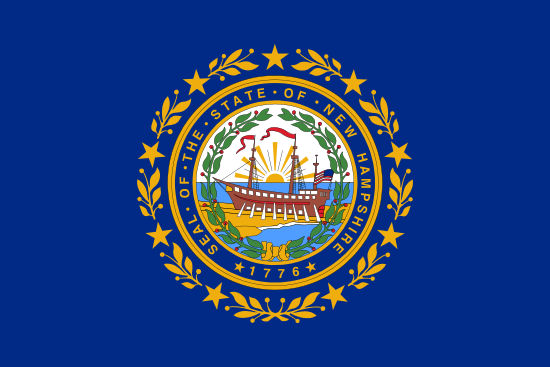Thanks to AFP-NH State Director Greg Moore for the headline and the link. I think Democrats must be disappointed, though. Their budget deal requires the economy to tank before they can raise taxes. They agreed to that.
Related: On Jan 1st, Our Neighboring States are Helping New Hampshire’s Advantage Grow
Democrats: We disagree on this budget, but if you agree to let us raise taxes when the economy can least afford it, we’ll support that.
And they did.
But so far, the New Hampshire economy has not been cooperating.
#NHEconomy goes BOOM – again – in December. State adds 1,680 more employed workers, labor force grows by 1,770. Both are all time records for NH. Despite sluggish national Dec jobs figures, NH still shines.https://t.co/c7kRbQNxkj#nhpolitics
— Greg Moore (@GregMooreNH) January 22, 2020
As Greg notes, from the NH Dept of Employment Security, things are looking great.
Seasonally adjusted estimates for December 2019 placed the number of employed residents at 757,710, an increase of 1,680 from the previous month and an increase of 12,480 from December 2018. The number of unemployed residents increased by 90 over-the-month to 20,090. This was 1,710 more unemployed than in December 2018. From November to December 2019, the total labor force increased by 1,770 to 777,800. This was an increase of 14,190 from December 2018.
The unadjusted December 2019 unemployment rate for New Hampshire was 2.3 percent, unchanged from the November rate, which remained at 2.3 percent after revision. The December 2018 unadjusted rate was 2.1 percent.
Contrast this continued expansion to the moaning and weeping from New Hampshire Democrats about New Hampshire’s wage picture. The left-leaning NH Fiscal Policy Institute (NHFPI) recently pulled out all the stops to point out how we are falling behind.
All New England states except New Hampshire have taken steps to increase their minimum wages in recent years, with some planning future increases that are calculated automatically based on inflation. Many of New Hampshire’s neighbors are ringing in the New Year with minimum wage increases in 2020 that will likely boost wages for many working individuals and families.
NHFPI is afraid people will flee to neighboring states to get a better starting wage but ignore how forcing that rate on employers suppresses jobs, hours, total income, and opportunity outside of the Granite State.
Meanwhile, New Hampshire’s labor picture has driven up the value of a starting wage to attract employees. Lower taxes and a more robust economy attract employers and expansions that bring more jobs, which in turn attracts job-seekers.
The Granite State is literally an island of economic sanity surrounded by a sea of virtue-signaling mostly left-wing central planners.
The result? We have the best economy in the region and are setting records for labor force participation and job creation: most or all of it well above the federal minimum wage to which NH defaults
This begs the question of which is better? Having more job openings (including entry-level skills-acquiring opportunities) at a market rate or having busy-body legislators telling job creators how much they should pay?
If New Hampshire and New England are the laboratories, you’ve got your answer. Having a job with opportunity and growth potential is better than not having jobs because employers can’t afford to pay the mandated minimum wage.
That means fewer jobs, fewer hours, fewer opportunities, and higher prices.
And how long before those jobs cross the border into New Hampshire along with the people to fill them? These latest wage hikes all went into effect Jan 1st so New Hampshire, job seekers, consumer, and even tax revenues stand, to benefit from that as well.
But not wage mandating, tax-hiking, central planning Democrats. Boohoo.
